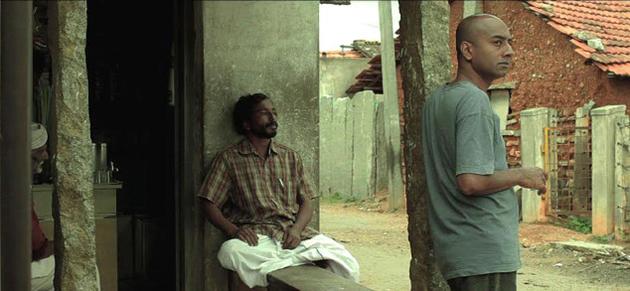 BANGALORE: Attihannu mattu kanaja (Fig fruit and the wasps), debut film by M.S. Prakash Babu, has received the honour of figuring in the Indian competition section of the Mumbai Film Festival, which commenced on Tuesday. The 90-minute existential road movie is a joint venture of National Film Development Corporation (NFDC) and Bayalu Chitra.
BANGALORE: Attihannu mattu kanaja (Fig fruit and the wasps), debut film by M.S. Prakash Babu, has received the honour of figuring in the Indian competition section of the Mumbai Film Festival, which commenced on Tuesday. The 90-minute existential road movie is a joint venture of National Film Development Corporation (NFDC) and Bayalu Chitra.
It tracks a documentary film maker’s journey, as she travels through south India to gather information on music. The unique feature of this film, made on a shoe-string budget, is on-spot recording. Natural sound captured with sensitive equipment is the background score.
Cinematography by H.M. Ramachandra is another factor that made the film rewarding for viewers with patience and some appreciation of existential cinematic experience. He has used a 5D camera for filming.
A post-graduate in painting from Vishwa Bharati University, Santiniketan, Prakash’s works have been exhibited in India and abroad. He directed his first short film Madhyaahnada Haadu (Afternoon song) in 2001. Since then, he has written and directed four more short films Three months of solitude, Mungaru Mugilu (Monsoon cloud), Poorva dikkina gali (The eastern wind) and Manna payana (Journey of earth), which were screened in major international film festivals in Tehran (Iran), Mumbai and in Jordan.
His latest work
Attihannu mattu kanaja had been selected for the Work in Progress Lab, NFDC Bazar 2013 and International Film Festival of India, Goa. According to Mr. Prakash, the film tries to explore human nature when people are placed in an environment that is familiar and at the same time unfamiliar. The film is shot in and around Sanehalli in Chitradurga district, which the director has been visiting for years to conduct classes at Shivakumara Ranga Prayoga Shale. The cast includes Bhavani Prakash, Manjunatha Belakere and Ranjit Bhaskaran.
Without adhering to any sloganeering, shouting, preaching and negating the readymade modes of story telling, the film narrative flows like a calm river maintaining its own natural rhythm. “I only facilitated that,” Mr. Prakash says.


